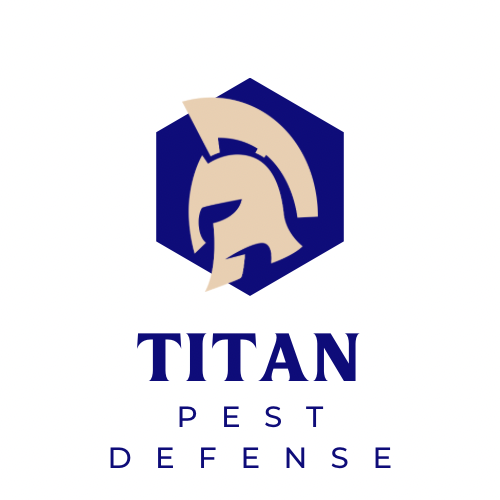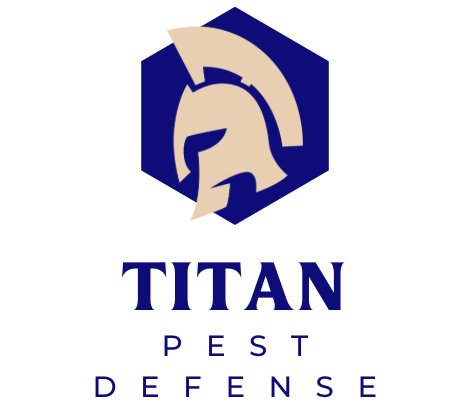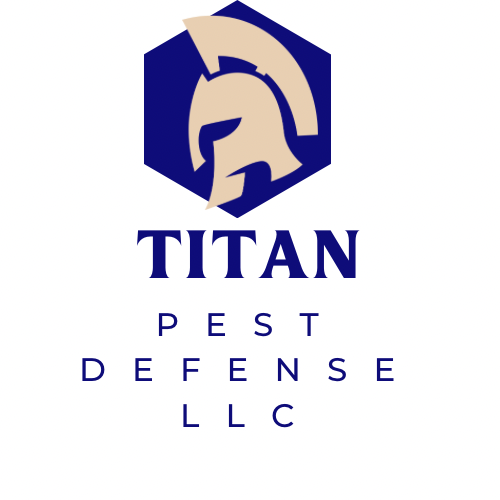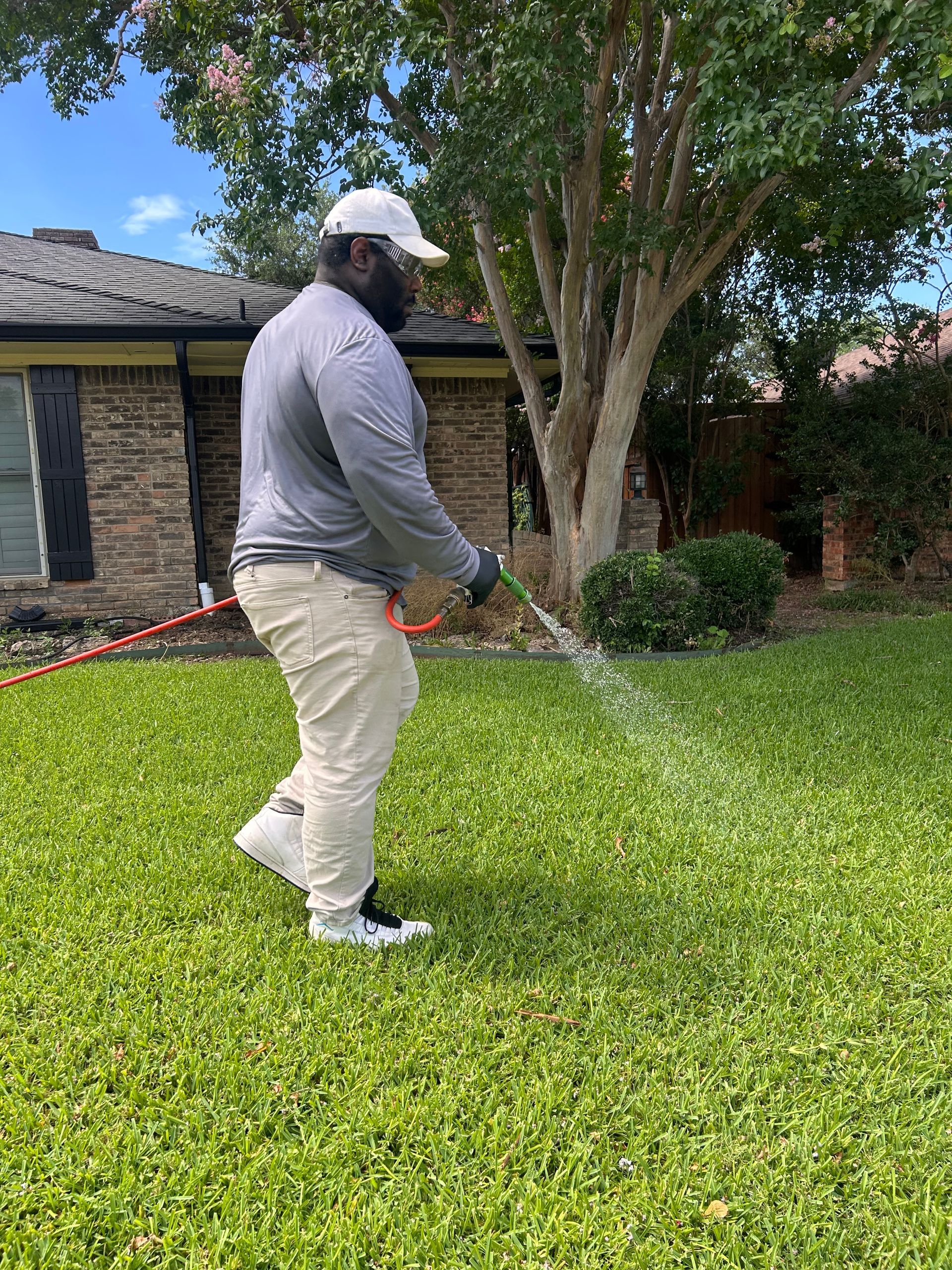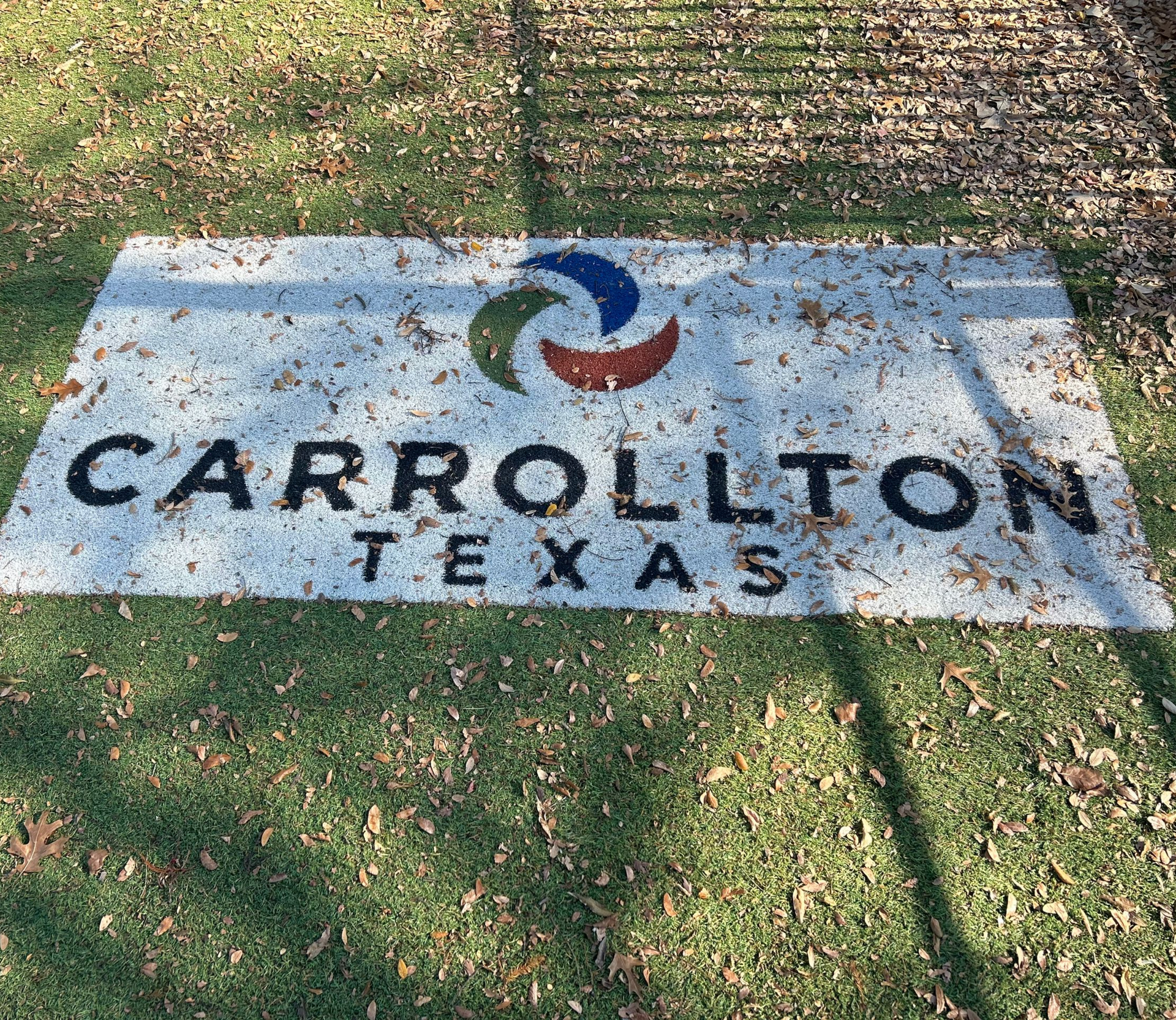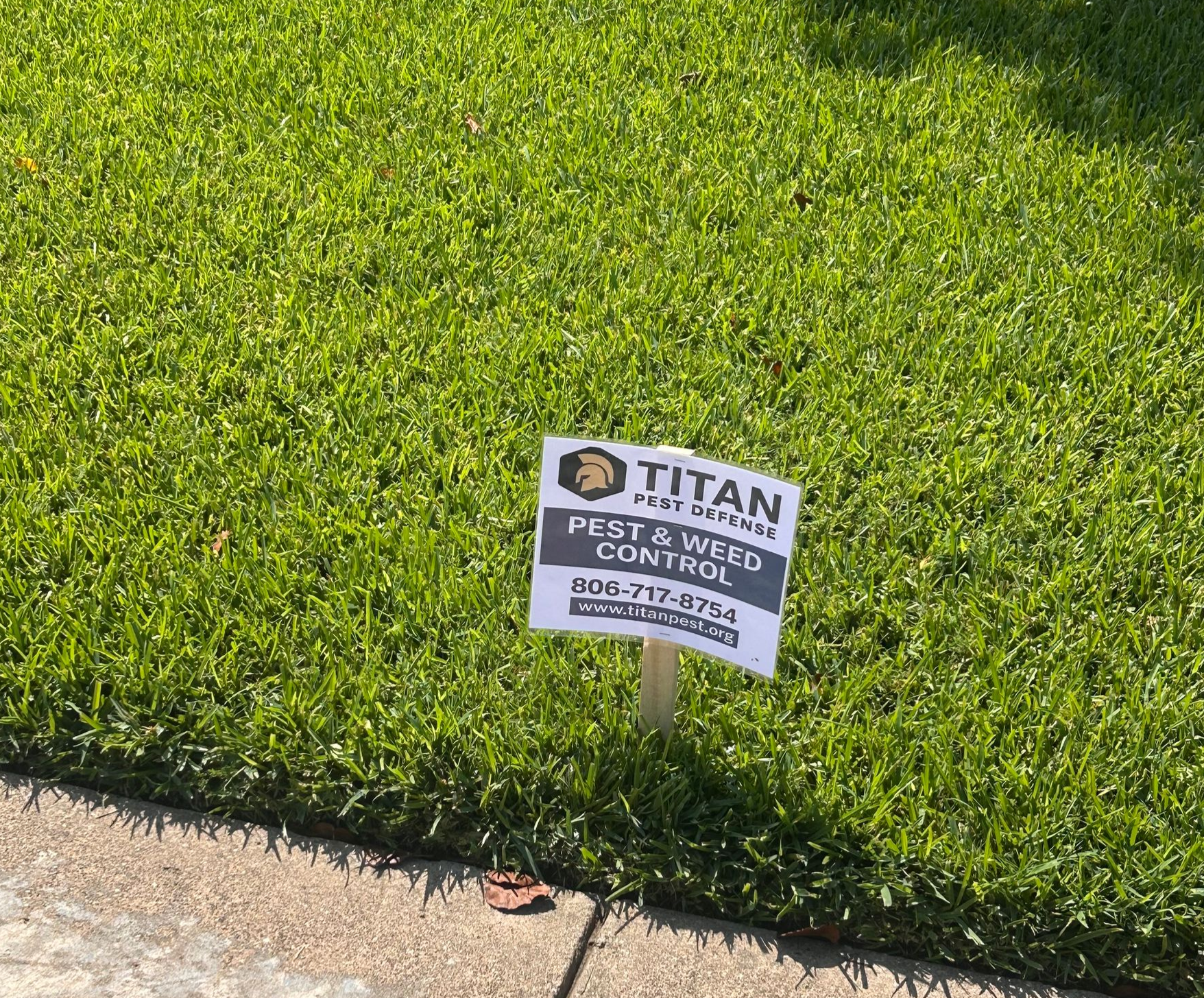Webworm Season in Dallas: How to Stop the Fall Invasion Before It Spreads
If you’ve noticed silky white webs stretching across your pecan or oak trees lately, you’re not alone. From August through October, Dallas neighborhoods are hit hard by fall webworms, a seasonal pest that can quickly take over trees and ruin your property’s appearance.
At Titan Pest Defense, we specialize in webworm treatments that are effective, eco-conscious, and perfectly timed to protect your trees during peak infestation. Whether you’re in Dallas, Addison, Carrollton, or Farmers Branch, our trained team is ready to help you stop the damage before it spreads.
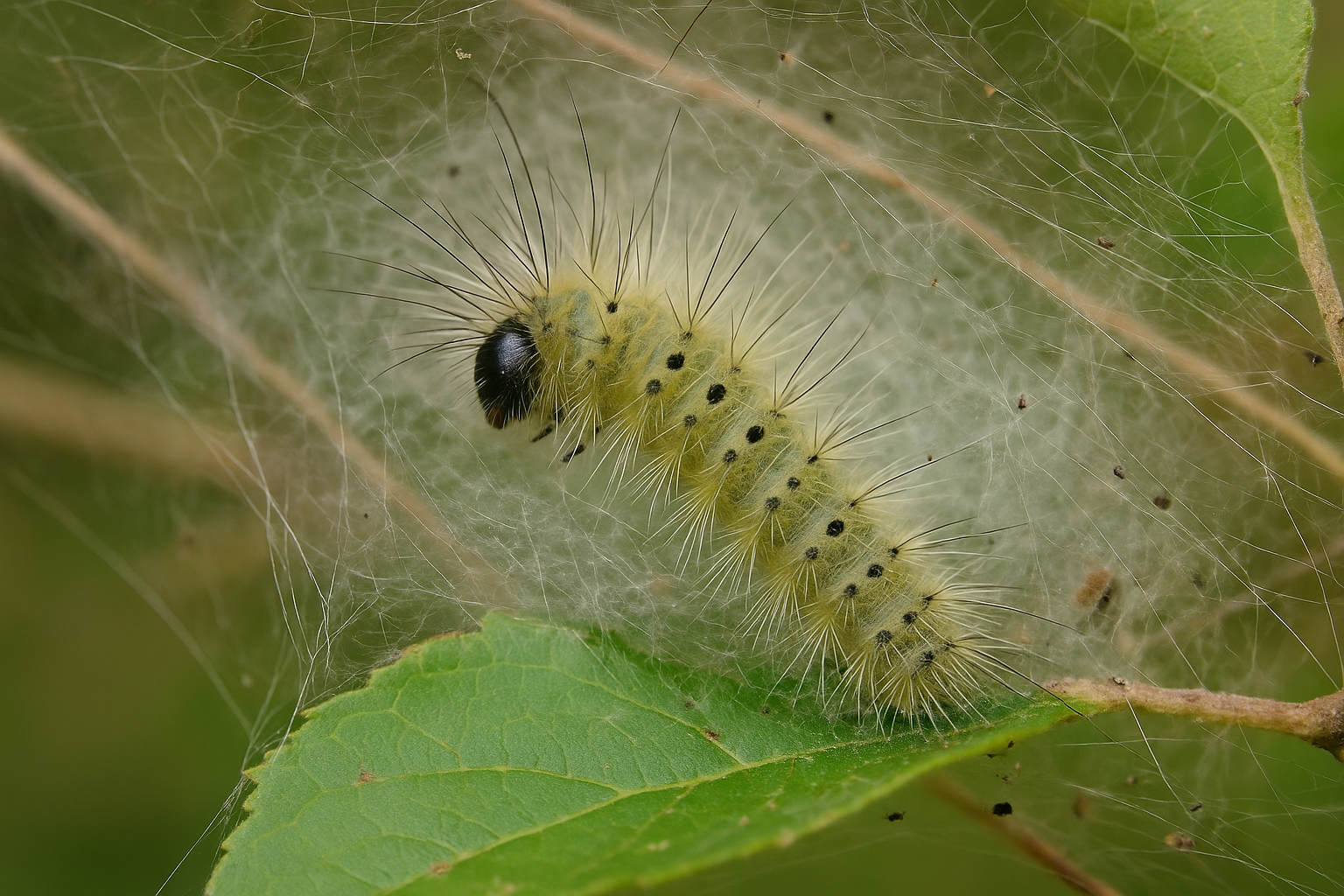
What Are Fall Webworms?
Fall webworms (Hyphantria cunea) are the caterpillar stage of a small white moth. Adult moths emerge in early summer and lay eggs on the undersides of leaves. Within a few weeks, the larvae hatch and begin feeding in groups, spinning massive silk webs at the tips of branches.
Unlike spring pests like tent caterpillars, fall webworms are active in late summer and early fall, making their presence obvious when trees are already stressed from summer heat.
According to
Texas A&M AgriLife Extension, these caterpillars feed on over 80 species of trees, but in North Texas, they heavily favor
pecan, oak, persimmon, and mulberry.
Why Webworms Are a Problem
While a single season of webworm activity won’t typically kill a healthy tree, repeated infestations can:
- Strip large amounts of foliage
- Reduce photosynthesis and slow tree growth
- Weaken trees and open them to secondary diseases
- Cause limb dieback or early leaf drop
- Drastically reduce curb appeal
In newly planted or already stressed trees, damage from webworms can be far more severe.
Plus, those sprawling white nests are unsightly and can lower property value—especially in high-visibility areas or HOA neighborhoods.
When Do Webworms Become Active in Dallas?
Webworm activity in Dallas typically follows this pattern:
| Month | Activity | Notes |
|---|---|---|
| May–June | Moths emerge | Eggs laid on leaf undersides |
| July | First generation hatches | Minor webbing begins, often goes unnoticed |
| August–October | Peak season | Second generation caterpillars cause most damage |
| November | Pupation | Larvae overwinter in soil or bark for next season |
By mid-August, webworms are in full force across North Texas. Waiting too long to treat allows nests to grow and spread, making treatment less effective. For maximum impact, treat during early to mid-August—before webs reach full size. Late-season applications may still help, but prevention is ideal.
Our Webworm Treatment Process
At Titan Pest Defense, we offer a multi-step approach to control webworms efficiently and safely.
1. Inspection
We begin with a detailed inspection of your trees and surrounding landscape. We identify affected trees, evaluate the infestation size, and note other stress factors such as drought damage, soil compaction, or fungal disease.
2. Timing-Based Insecticide Application
We use targeted, professional-grade products—such as spinosad, Bt (Bacillus thuringiensis), or cyfluthrin—based on infestation level and tree species. These products are EPA-approved and recommended by experts like NC State Extension, especially when applied to young larvae before webbing thickens.
Treatments are usually scheduled in early to mid-August, with follow-ups into September as needed. Webbing that is already thick may require mechanical disruption before chemical application.
3. Follow-Up Monitoring
We offer routine follow-up visits or incorporate webworm control into your year-round pest and lawn service plan. Multiple generations may emerge, so it’s important to monitor new activity even after initial treatment.
4. Tree Support Services
Stressed trees are more susceptible to webworms. We offer deep root fertilization and weed management as add-ons to help your trees recover and resist future infestations.
Why Choose Titan Pest Defense?
- Locally owned and operated
- No long-term contracts
- Transparent pricing
- Eco-conscious and pet-friendly options
- Combined pest + lawn solutions under one plan
Our team understands the unique seasonal cycles of North Texas pests. We’re more than exterminators—we’re landscape health partners.
Whether you're battling fall webworms, grubs, or broadleaf weeds, we tailor every plan to your property’s needs.
The Connection Between Webworms and Lawn Health
Many homeowners don’t realize that lawn health impacts tree health—and vice versa. A lawn full of weeds or suffering from drought will put added stress on tree roots, weakening your landscape’s overall resilience.
That’s why we recommend pairing webworm treatments with our full Dallas weed control service. With pre-emergents, post-emergents, fertilization, and even grub control options, we help defend your entire yard from top to bottom.
Trees recovering from webworm damage benefit significantly from well-maintained turf and consistent soil nutrients. A healthy yard creates a natural buffer against future infestations.
DIY Webworm Control: Does It Work?
Homeowners often try:
- Pruning out nests
- Spraying with dish soap
- Burning webbing (not recommended)
While small nests can sometimes be pruned successfully, this method has limits:
- Doesn’t address caterpillars outside your reach
- Misses new generations that haven’t formed visible webs yet
- Risks harming the tree through over-pruning
The Arbor Day Foundation recommends early, proactive insecticide treatment as the most effective control—especially for trees larger than 10 feet.
Common Webworm Host Trees in Dallas
If you have any of these in your yard, you're at higher risk for infestation:
- Pecan
- Oak (especially red and live oak)
- Mulberry
- Persimmon
- Willow
- Sweetgum
- Bald Cypress
- Cottonwood
We offer preventive treatments if you’ve had webworms in the past—even if no nests have appeared yet this year.
Book Your Webworm Treatment Today
Webworm season in Dallas is already here. The longer you wait, the harder it becomes to control the spread. Whether you’ve spotted nests already or just want peace of mind, Titan Pest Defense is here to help.
We proudly serve Dallas, Addison, Carrollton, Farmers Branch, and surrounding neighborhoods. Let us inspect your trees, stop the damage, and restore your landscape’s health—fast.
Call
(806)717-8754 us or visit
titanpest.org to schedule your webworm treatment now.
🔗 Already thinking about weed control too? Learn more about our
Dallas weed control services.
Titan Pest Defense — Your Local Partner in Pest-Free Living.
